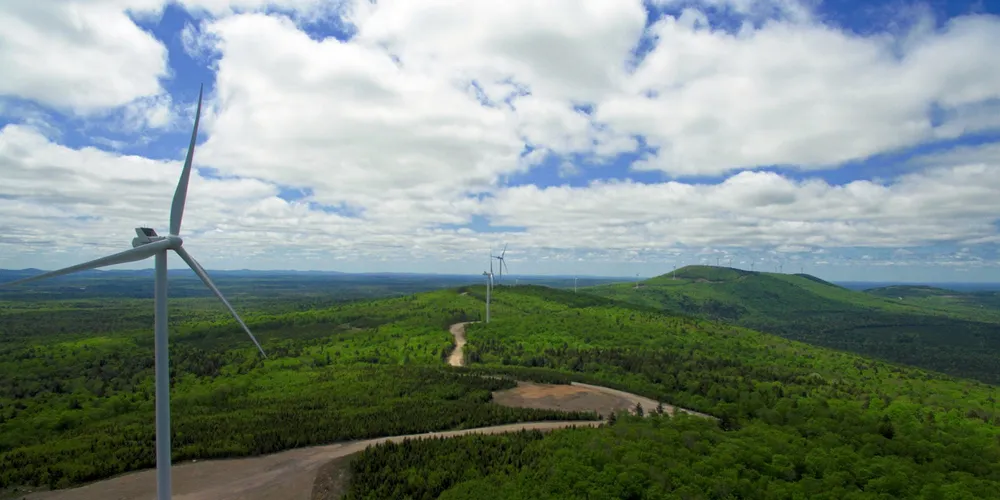Green light for biggest wind farm in US north-east as Maine clears Longroad's 1GW King Pine
State regulatory clears way for giant project by Boston-based developer that will double Maine's onshore generation and include export of electricity to neighbouring Massachusetts

Utility regulators in the US state of Maine have approved the 1GW King Pine onshore wind development and a proposed a giant transmission line that will bring the electricity to consumers there and in neighbouring Massachusetts.
Developer Longroad Energy’s $2bn project, which will be the largest onshore wind farm in New England and among the five largest in the country, will double Maine’s present 1GW of operting wind plant.
“These projects will provide significant benefits to Maine and the region, including jobs during construction, property tax revenue for local communities, and environmental benefits from new renewable energy displacing fossil fuels,” said Philip Bartlett, chair of the Maine Public Utilities Commission.
Boston-based Longroad anticipates building the giant wind farm in far north and heavily forested Aroostook County bordering Canada in stages with the first to begin in 2026, with power production late in 2028.
GE, Vestas, and Siemens Gamesa, the top three suppliers in the US market, offer a turbine with that power rating, although relatively few have been installed.
When fully online, the facility will generate 3.18 million MWh a year of electricity with 60% to be sold to investor-owned utilities in Maine and 40% to those in Massachusetts.
The infusion of 1GW of clean wind energy will help lower bulk electricity prices, reduce price volatility, and further the state’s climate goals, he added.
Maine, which has no fossil fuel resources, presently generates about 23% of its electricity from onshore wind and 26% from clean energy, 10th best among the 50 states. In 2019, Governor Janet Mills signed a law raising Maine’s renewable portfolio standard goal to 80% by 2030.
Massachusetts has 106MW of installed onshore wind capacity with resource potential for about 1GW, according to the National Renewable Energy Laboratory. Both states have the best offshore wind resource along the US Atlantic coast.
Longroad wants to negotiate long-term off-take agreements with investor-owned utilities in both states, a process it wants to conclude by May.
Longroad is owned by NZ Super Fund, a sovereign wealth fund, and Infratil, an infrastructure investment company, both based in New Zealand; MEAG, asset manager for Munich Re and ERCO, and the company’s senior management.
LS Power, which will build, own, and operate the transmission line, will secure long-term sales deals for its 1.2GW carrying capacity with the utilities. These will also require regulatory approvals in Maine and Massachusetts.
The developer, based in New York City, expects to energise its double-circuit line in June 2028 and no later than 1 January 2029.
(Copyright)